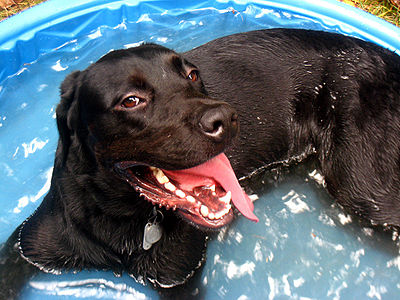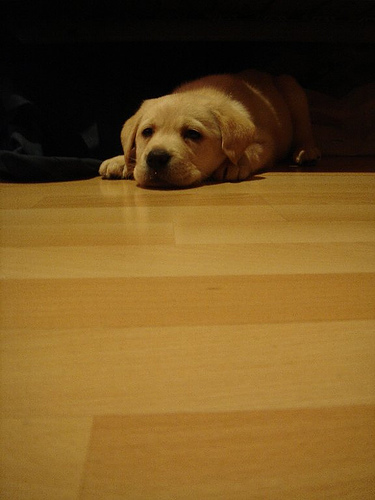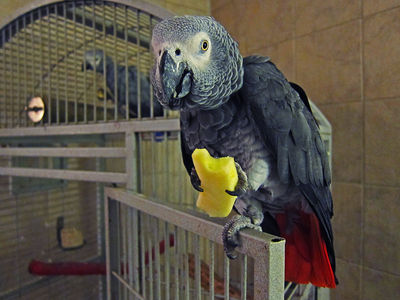
Hot weather means spending lots of time outdoors, something our furpals enjoy too.
In order to ensure the safety of our pets, here are some precautions.
Take your pet for a spring/summer checkup at the vet. Your vet may want to test your pet for heartworm if you don’t medicate against it all year. Discuss a flea and tick preventive program with your vet.
You might want to give your pet a haircut. But don’t expose the skin as the fur protects the skin from sunburn. Leave at least an inch of fur covering your pet’s body.
Outdoors, make sure your pets have shady areas to rest out of the sun. Always provide them with lots of clean, fresh water as pets can become dehydrated very quickly.
Never leave your pets in a parked car even if you crack open the windows. Even if you’re gone a short time, cars become extremely hot and can cause your pets to suffer heat stroke. Heat stroke can be fatal. Several states have laws against leaving pets unattended in vehicles during hot weather.
If you live in a high-rise building, make sure all windows, window screens and doors are secure. If you have a patio in your high-rise, make sure it’s pet-safe and your pets won’t fall and seriously or fatally injure themselves.
Always supervise your pet at a pool or at the beach. If you take your pet on a boat, provide safety gear. Don’t allow your pet to drink pool water as it contains harmful chemicals. Rinse your pet off after swimming to rid the coat of chemicals and salt.
When temperatures are very high, limit walks and exercise. Walking too long on hot surfaces can burn your pet’s paw pads. Try to walk your dog early in the morning before the sun is up or becomes strong and in the evening after the sun goes down.
Keep all chemicals including insecticides, garden products, flea and tick preventives, etc. out of your pet’s reach.
If you believe your pet has ingested something poisonous, call the ASPCA Animal Poison Control Center at (888) 426-4435.
If you keep rabbits or ferrets or any small animals in outdoor cages, make sure they are not in direct sunlight, have shady retreats for them and supply plenty of fresh, clean water.
If at all possible, keep your pets indoors where there is air-conditioning on extremely hot days.
Know the signs of overheating in your pet which include difficulty breathing, excessive panting, drooling, weakness, seizures, increased heart rate. If your pet shows any discomfort which you feel is heat-related, contact your vet or emergency center immediately. This is a medical emergency that requires immediate attention.
If you attend a BBQ with your pet, let everyone know that all foods and drinks are not safe for pets. Keep a close watch as even small diet changes can cause upset.
If you attend any outdoor activities with your pet, always carry an extra water container.
The best place for your pet during celebrations like the Fourth of July is at home. The loud noises of firecrackers and fireworks can be very upsetting. Your pet will feel safer and secure in familiar surroundings.
Follow these precautions, always put your pet’s safety first and you and your pet will have a happy, healthy summer.



